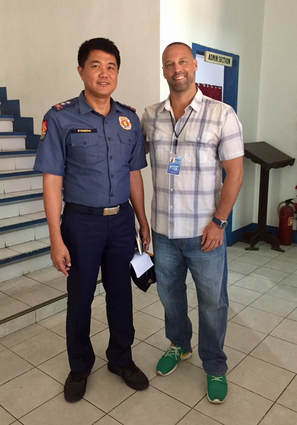
That’s the case here in Dumaguete, too, as I’ve had little interaction with the local police in my year living here, but I certainly enjoy that our City of Gentle People is one of the safest places in all of the Philippines every day.
Recently, I had the opportunity to sit down with Chief-of-Police Jonathan Dojoles Pineda, who’s tasked with keeping us safe. I walked away with a new respect and even admiration for the Dumaguete Police Force.
Profusely apologetic that he was just few minutes late because he was out on a call, he turns on the air con in his office and welcomes me to sit down across from his desk. Pineda exudes authority with a quiet, no-nonsense confidence, more like someone you don’t want to disappoint than someone you don’t want to cross. But he also appears at least a decade younger than his 45 years and is still in shape like a soldier out of boot camp.
Pineda has served as police chief of our Gentle City for five months now, since November 2017. Before that, he distinguished himself in the chief provincial investigation and detective management branch in Sibulan. Originally from Negros Occidental, he’s been a police officer for 21 years now – almost half of his life.
He’s also a devoted husband and family man, and when he’s not working (which is almost unheard of these days, as he works seven days a week), he enjoys playing basketball, volleyball, biking, and jogging.
I started by asking Chief Pineda what the biggest priorities were for his police force these days.
“Tell the community that we’re not only focusing on criminality, but anti-terrorism,” Pineda said. “We cannot deny that terrorists can strike anywhere. And most especially on the south portion of the country.”
Pineda also wants the Dumaguetenos to know that he’s focusing his efforts on drug clean-up operations. He makes the rounds to local barangays, talking to officials and urging adherence to the national government’s drug enforcement program. His aim is to clear 20% of all barangays of drug pushers and users by the end of the year, a lofty goal considering that there are 30 barangays here.
But far from a totalitarian enforcer, Pineda stresses the human element of the drug eradication program. Drug users will receive rehabilitation, then are sent to school or technical programs where they can learn valuable skills and earn a living. For many, it will be the first real opportunity they’ve had in life, and Pineda acknowledges that poverty is one of the main reasons why we have a drug problem.
To help counter terrorism and deal with the bigger, potentially violent drug busts, he’s instituted a special group of 10 elite officers who wear black uniforms and travel by motorbike, called the “Motor Riding Unit.”
Since Dumaguete is growing so quickly, what challenges does that bring for Pineda and his force? Without hesitation, he answered that the police force was undermanned, and that problem will only become more profound as the population grows. In fact, Pineda has only 100 police and 20 auxiliary officers at his disposal, all working 12-hour shifts.
An ideal ratio for police-to-population is 1 to 500 in any city, but Dumaguete’s 100 officers serve a nighttime population of 130,000 people and a daytime population of 400,000 or more. That means instead of 1 to 500, the police-to-population here is only 1 to 1,1300 or 1 to 4,000, respectively.
But this year, they’ve been promised reinforcements, as Mayor Romello will procure six new motorcycles, a 4-wheel vehicle, two drones, 30 handheld radios, eight bulletproof vests, and eight body cameras for the police force. There is also talk of installing 350 CCTV cameras across all barangays in Dumaguete.
My appointed time with Chief Pineda is supposed to be up, and I know he’s a busy man, but he encourages me to continue our chat. “Please, go on with your questions,” he says with earnestness. ‘This is important for Dumaguete, so it’s important to me.”
***
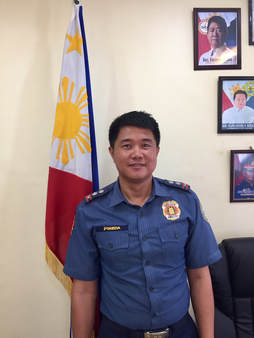
While Chief Pineda didn’t see foreigners bringing extra problems for the police, his force and others do deploy extra police and carefully review of policies in high-tourism areas like Manjuyod, Bais, and others, called the Summer Vacation Implementation Security Plan.
He also clarified that Dumaguete’s Tourism Police force (often out on Boulevard) are separate from Pineda’s regular police force, but they all have the same job: to keep everyone – including tourists – safe in Dumaguete.
A lot of that comes down to informing tourists and foreigners what’s expected of them -and what not to do.
“That is my intention,” Chief Pineda said. “To communicate with the tourists coming to Dumaguete. It’s the same as when you fly to Davao – before the airplane lands, they get on the loudspeaker and say, ‘Be advised that here in Davao, smoking is prohibited.’ I want to coordinate through tourist agencies what our policies and ordinances are so that they can pass them along."
Chief revealed that he wants to get civilians more invested in their own city, fostering their sense of pride. We chatted about the Broken Windows Theory of policing that helped transform New York City from a seedy hotbed of violence, drugs, and criminality in the 1980s to one of the safest major cities in the world only decades later.
To that end, he’s rolled out the well-documented Discipline Zones program, which was introduced by the national office. In an effort to organize and clean up the streets, individual task forces (like parking, jaywalking, anti-vending, littering, etc.) have been combined, working in concert to implement city, local, and national ordinances.
Dumaguete’s Discipline Zone is in its pilot stage, a trial run along the national highway from downtown to the Robinson’s Mall area. The police are carefully tracking what works, what doesn’t and what needs changing, with weekly and monthly evaluations, before the program is extended to more locations and longer hours.
But Pineda’s inclusive policing encourages civilian volunteers to take part in enforcing the Discipline Zone program. Volunteers receive training and then are instructed to monitor activity on the streets, talk to and educate citizens, and call the police if they see illegal activity – but never engage or make contact.
Since the force is understaffed (the Discipline Zone is supposed to run 24 hours a day, seven days a week), the police are welcoming more volunteer groups to be of assistance. Recently, a motorcycle club came out to patrol the Discipline Zone, and other civic organizations are getting involved.
Since the position of Chief-of-Police only extends through two years, I asked Pineda what’s next after he steps down. Contemplative, he was certain that he wants to continue serving and helping people, maybe with the police force on a provincial or regional level, or possibly by pursuing elected office. “If my wife allows me to be in Manila,” he says with a smile.
With that, I asked Chief Pineda what Dumagueteños can do to help make their city safer? He assured me that if they see illegal activity, they should contact the police immediately. The Dumaguete police force has a 24-7 contact number in case of emergency or if people need assistance. They can even text the police instead of calling, or submit a message on the official police Facebook page.
Thank you, Chief-of-Police Jonathan Dojoles Pineda for your service and hard work to the people of Dumaguete, and for spending some time with the Metro Post!
***
-Norm :-)
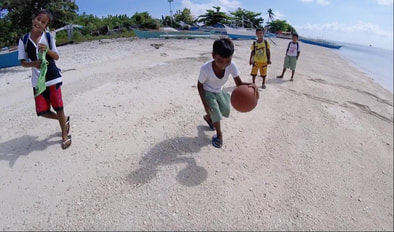







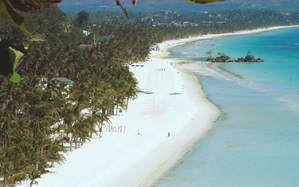

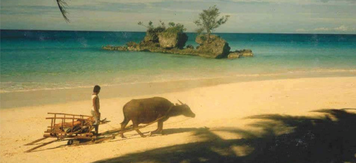
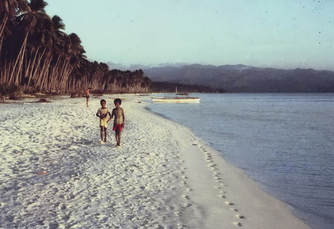

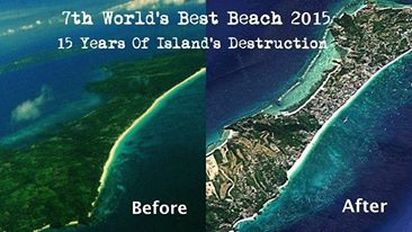
 RSS Feed
RSS Feed